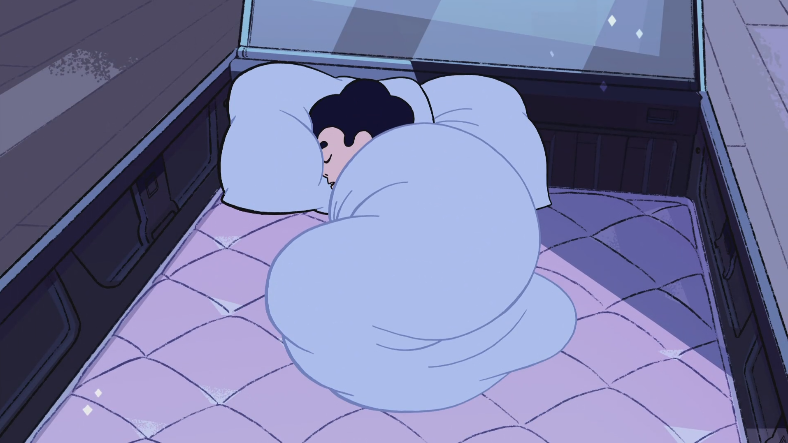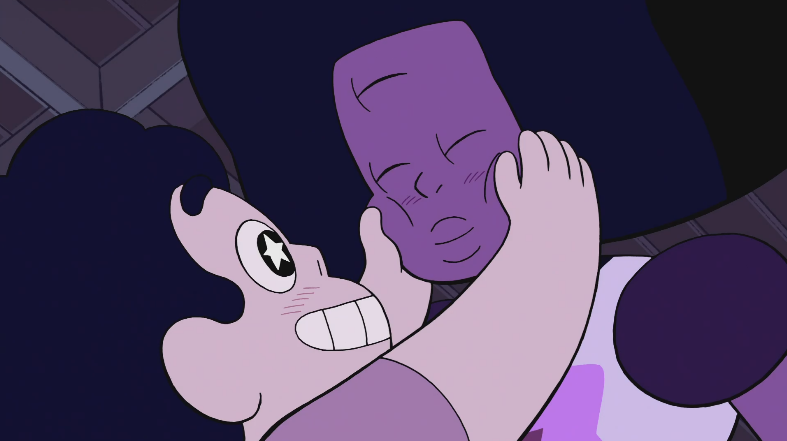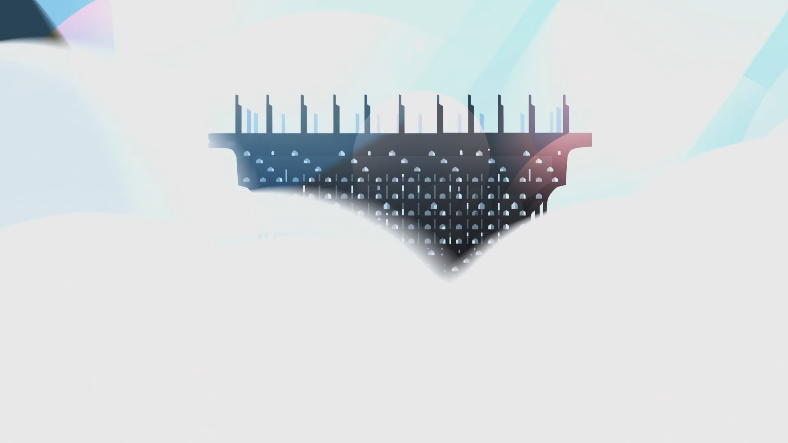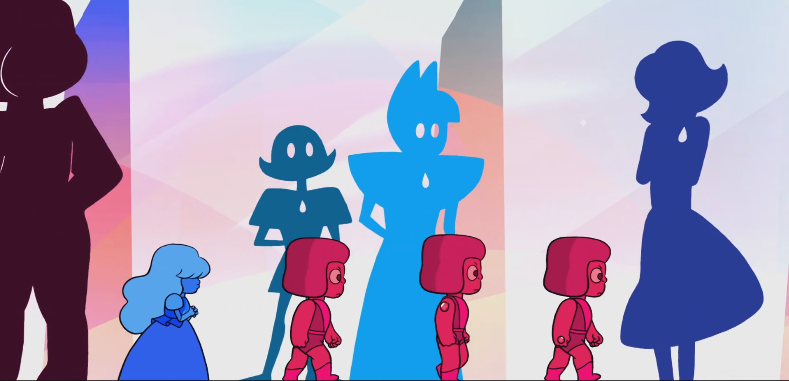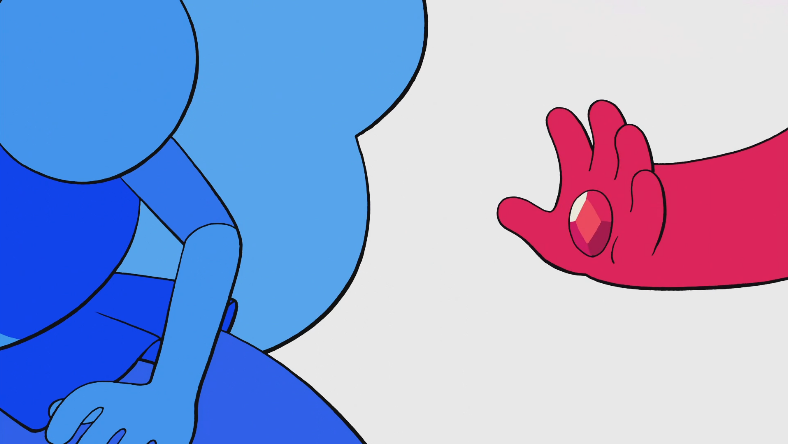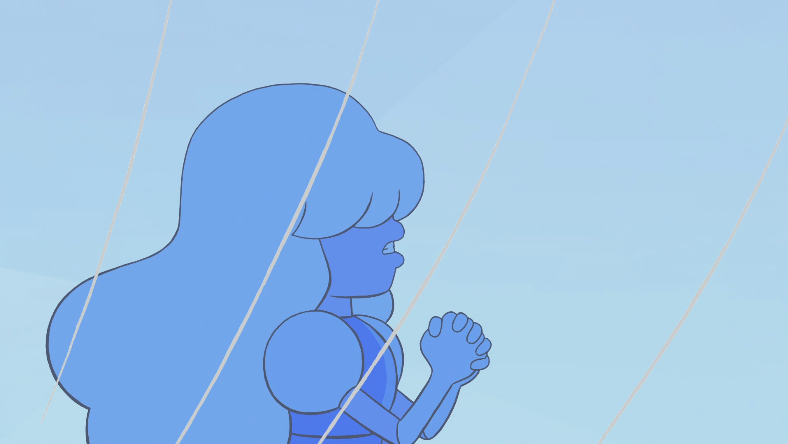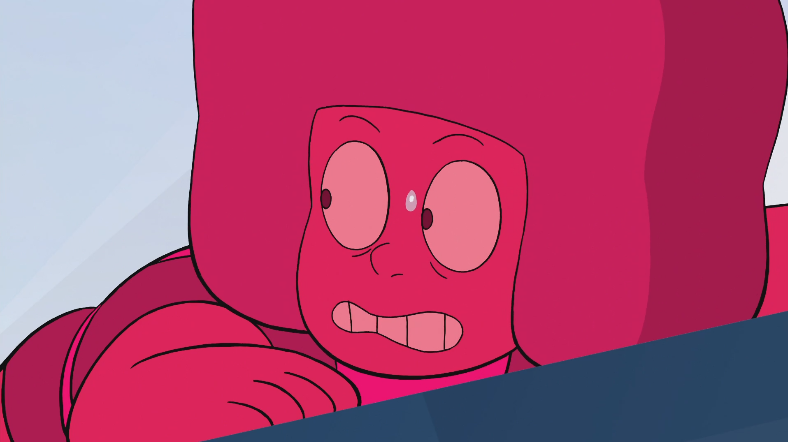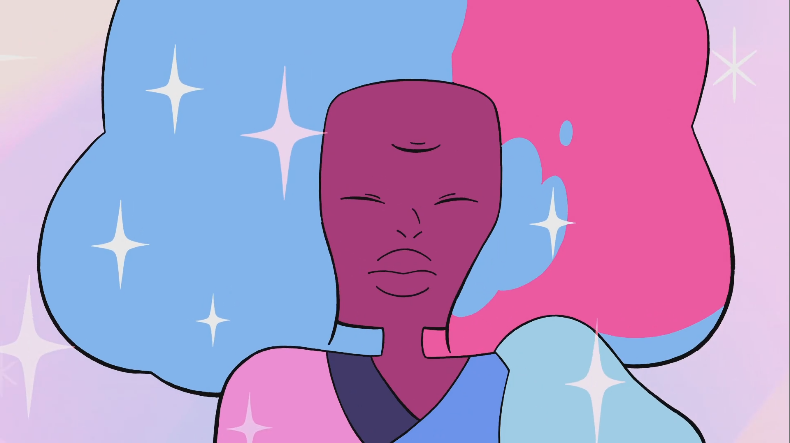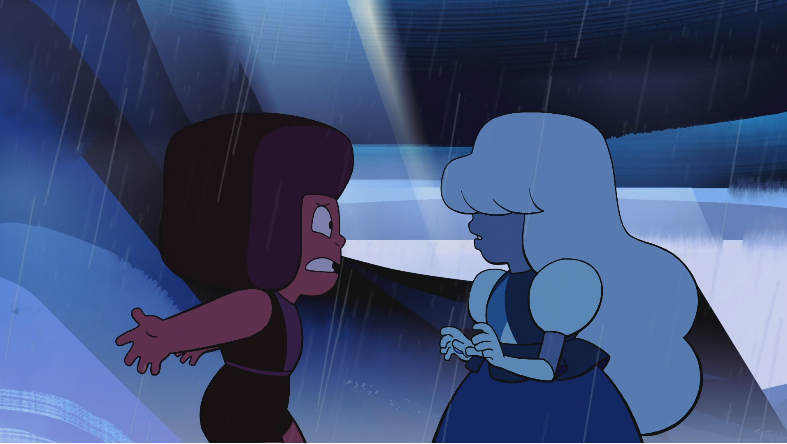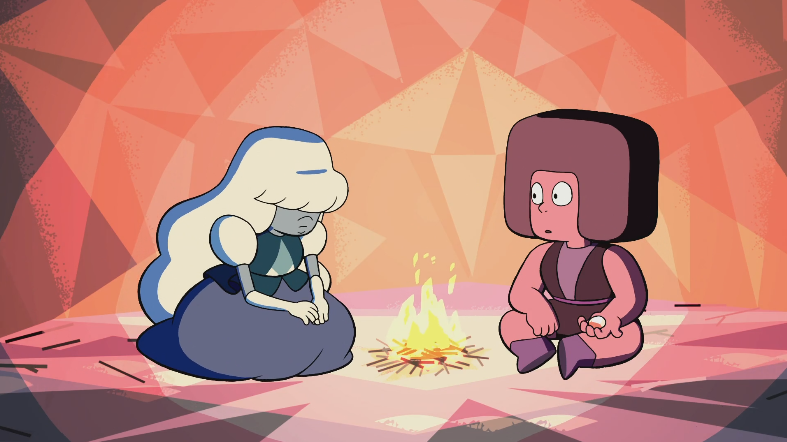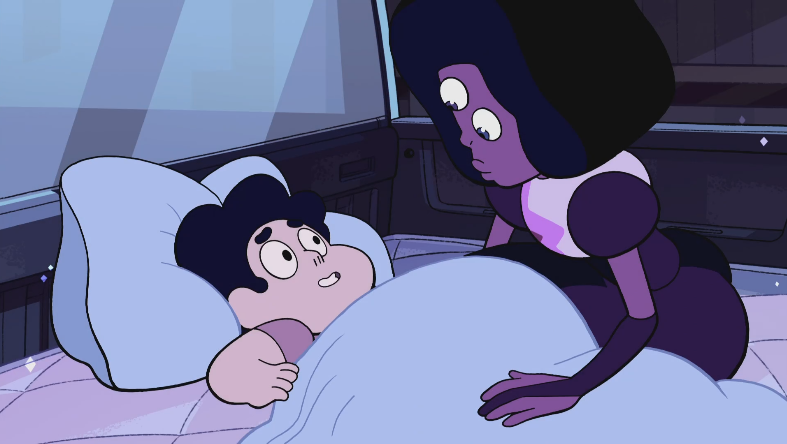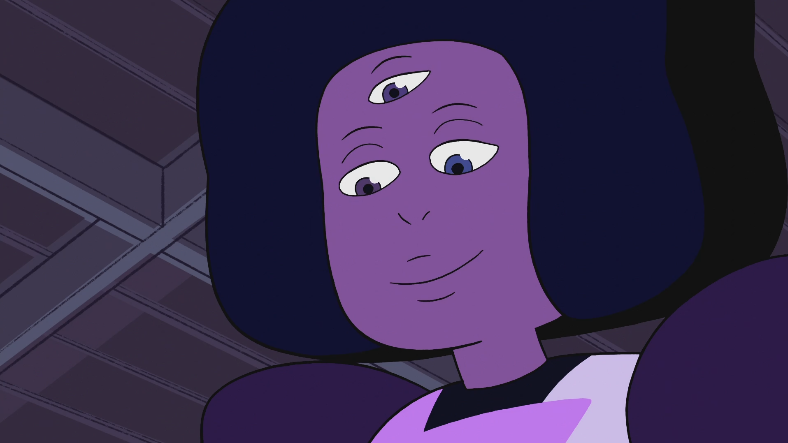Refusal
So Maya Petersen recently tweeted out the obvious yet previously unvoiced behind-the-scenes intention for Peridot to be Steven Universe’s aroace representation. This shouldn’t be a surprise, particularly given Peri’s role in Rebecca Sugar’s “all about fusion” children’s book a while back. (“And if you don’t want to fuse… that’s cool, too.”) But, of course, this admission has led to discourse.

There are now a hundred and twelve long and angry rants in all the usual places about why making Peridot aroace is somehow a bad thing. One of the more creative is the notion that because we’re using fusion as a way to illustrate this, it suggests that autistic people are incapable of forming meaningful relationships of any sort. Which, just…
Yikes.
I feel like people push back way too hard against the reductive reading of fusion-as-sex, to the point where it’s functionally meaningless. “It’s not sex,” people assert, “it’s just any kind of relationship at all!” And, no. That overcorrects to the point where if anything it would be more accurate to just shrug and say, okay, they’re all fucking.
Fusion is about intimacy. It’s about being so in-harmony with another person that the boundaries disappear and you might as well be one. Ergo, the dancing. In our touch-starved culture it’s super hard to draw the line between intimacy and sex, to the point that intimacy is often used as a synonym for sex. People often don’t seem to understand there are other kinds of intimacy.
To say that fusion is just any old relationship reduces the metaphor to the point where it might as well not even exist, all out of a fear of coming anywhere near a discussion of fucking or an inability to separate fucking from intimacy.
Not every relationship is going to be an intimate one. That would be nuts. Not every intimate relationship is going to be a sexual one. That would be unfortunate.
As a highly sex-averse (and even touch-averse) aroace person myself, I see zero functional problem with the use of fusion as a metaphor when discussing a lack of sexual or romantic attraction. A person can have lots of kinds of relationships without a desire for intimacy—be it romantic or sexual or anything else in nature. And likewise in the show, people can have relationships without fusing. Peridot and Steven have a relationship, a close and special one, and they are unlikely to fuse on purpose. There are boundaries, that Peridot is unlikely to feel motivated to cross.
With an understanding of Peridot’s intended representation, the metaphor continues to work exactly as deigned.

There’s also a popular thread where people like to leap on Peri’s obvious autistic coding as basis for why any little thing under the moon is problematic when applied to her in particular, but. Again, speaking as an autistic person, this all seems… correct?
Yeah, an inherent problem with representation is that everyone is different so no single representative is going to completely map with an individual’s experience. But, they shouldn’t have to. That’s absurd. Not everything is about me, or about you, or about the next person in particular.
I’m reminded of how Wikipedia editors seem to think it’s impossible to summarize Doctor Who without diving deep into the character’s allergy to aspirin. It’s crucially important to understanding who the character is, they will insist.
Ideally there wouldn’t just be one aroace-coded character in the show, and they wouldn’t also be an autistic-coded character, and so on and so on. But, let’s take a step back and consider: there is an aroace-coded character, and there is a positively portrayed autistic-coded character. Both of which are vanishingly unusual. And the way they’re depicted is broadly accurate and sympathetic, both within the show’s language and in terms of what’s being represented. Not in every way for every autistic person, or every aroace person, but I am also not every autistic person or every aroace person, and though I shouldn’t expect my experience to mirror anyone else’s completely I think I have a few relevant things to say about my own.
Like Stevonnie or Garnet, Peridot isn’t perfect, idealized representation. She’s just roughly accurate, literary-coded representation in a field where even that is difficult to find. There’s nothing wrong with her depiction, with her coding, or the continued use of the endlessly complicated metaphor of fusion to explain something almost never explained in mainstream contemporary fiction. I’m aroace, and her aversion to intimacy is accurate to my experience. I’m autistic, and her collection of obsessions and blind spots is cartoonish but also accurate. The intersection of the two is something that I can easily identify with.
Not everyone will, and not everyone has to. And that’s okay. That doesn’t mean they’re doing it wrong. It doesn’t mean ill intent. It just means that everyone is different.
And that we really need to understand what intimacy is, in this culture.




























